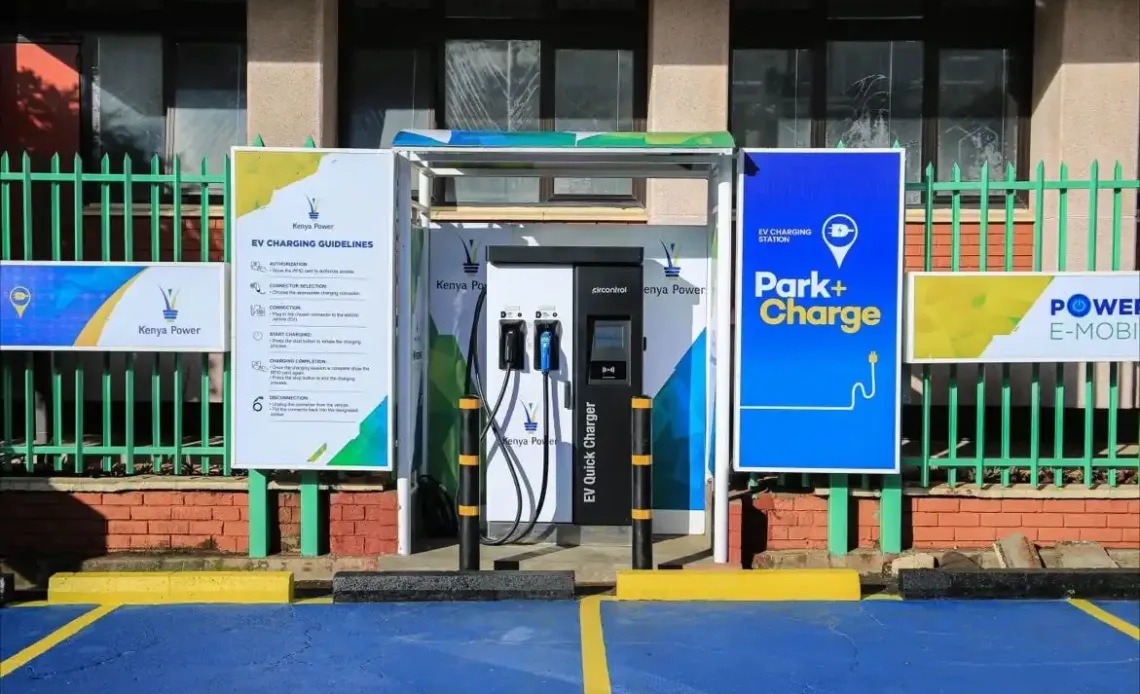
Kenya Power has announced plans to install 45 electric vehicle (EV) charging stations across six counties over the next year.
The chargers will be deployed in Nairobi, Nyeri, Kisumu, Eldoret, Nakuru, Mombasa, and Taita Taveta. In Nairobi, six of the chargers will be at Jomo Kenyatta International Airport (JKIA).
“Kenya Power is committed to enabling the country’s transition to electric mobility to catalyse the reduction of carbon emissions,” said Dr. (Eng.) Joseph Siror, the company’s Managing Director and CEO. “Part of our plan is to create an enabling environment for players within the e-mobility ecosystem through provision of adequate power supply and infrastructure such as charging stations that will enable motorists to travel with ease.”
Dr. Siror was speaking at the opening ceremony of the 3rd Annual E-Mobility Conference and Expo, hosted by Kenya Power in collaboration with GIZ and the Electric Mobility Association of Kenya (EMAK).
So far, three EV chargers have already been installed in Nairobi, and the company appears ready to scale. The timing is critical, as interest in electric vehicles continues to rise. Official figures show that Kenya now has around 9,047 registered EVs, a steep rise from 2,694 in 2023 and 5,294 in 2024.
The government has committed to reducing greenhouse gas emissions by 32% by 2030, with the transport sector currently responsible for approximately 23% of global carbon emissions. To support this target, Kenya Power is working with private sector players to assess energy and infrastructure needs that will guide the rollout of EV-friendly policies and investments.
“We’re focused on deploying the right strategies to support this transition,” said Dr. Siror. “This includes engaging with stakeholders to shape an e-mobility ecosystem that is efficient, scalable, and sustainable.”
The rapid growth of electric mobility in Kenya has been supported by the introduction of the e-mobility tariff, making EV charging more affordable under the country’s revised electricity pricing model.
Kenya Power’s Board Chair, Joy Brenda Masinde, emphasized the need for policy support to sustain the momentum. “We appreciate the immense support we’ve received from the Government of Kenya,” she said. “Our focus now is to advocate for continued incentives such as tax exemptions and subsidies for EVs and charging infrastructure.”
Also Read: Kenya Power to Invest KSh 258 million to Drive Uptake of Electric Mobility in Kenya

